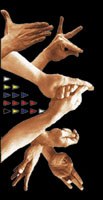Events
A special evening and probably for the first time after the formation of the Sangeetha Nritya Academy in Karnataka, all the ex- chairpersons of the Academy are performing on the same Diaz as part of Ravindra Kalakshetra 50, NENAPINOKULI, organized by the Department of Culture, the Academies and the cultural committee of NENAPINOKULI. Do join us…! Anubhava Mantapa was an academy of mystics, saints and philosophers of the ‘Lingayata’ faith in the 12th century. It was the fountainhead of all religious and philosophical thought pertaining to the Human Values, Ethics. It was presided over by the mystic Allama Prabhu and numerous Sharanas from all over Karnataka and other parts of India were participants. The Sharanas belong to the lower strata of the society basically called the Sudras and the Dalits in the Varna System of Hinduism. Sudras and Dalits where provided equal opportunities by the social reformer Basaveshwara and m≤ade them to depend on their own work, think rational and contribute back to society through Dashoha. This institution was also the fountainhead of the Vachana literature which was used as the vector to propagate Sharana’s views and philosophical thought. Other Sharana’s and Sharanes theosophy like Akka Mahadevi, Channabasavanna were participants in the Anubhava Mantapa.It was a unique socio spiritual revolution to establish an egalitarian society.
The Sharanas belong to the lower strata of the society basically called the Sudras and the Dalits in the Varna System of Hinduism. Sudras and Dalits where provided equal opportunities by the social reformer Basaveshwara and m≤ade them to depend on their own work, think rational and contribute back to society through Dashoha. This institution was also the fountainhead of the Vachana literature which was used as the vector to propagate Sharana’s views and philosophical thought. Other Sharana’s and Sharanes theosophy like Akka Mahadevi, Channabasavanna were participants in the Anubhava Mantapa.It was a unique socio spiritual revolution to establish an egalitarian society.The Anubhava Mantapa worked to build a Vibrant casteless, creedless Society with full of Human Values propagated through Vachanas The movement initiated by Basava through Anubhava Mantapa became the basis of a sect of Human values. It gave rise to a system of ethics and education at once simple and exalted. It sought to inspire ideals of social and religious freedom, such as no previous faith of Earth had done. In the medieval age which was characterized by inter-communal jealousy, it helped to shed a ray of light and faith on the homes and hearts of people. But the spirit soon disappeared after the intermarriage that Basava facilitated came to an abrupt end when the couple were punished for the same by the King. The dream of the classless society was shaken and Basava soon realised the meek picture and left for Kudala Sangama and a year later died.
The movement gave a literature of considerable value in the vernacular language of the country, the literature which attained the dignity of a classical tongue. Its aim was the elimination of the barriers of caste and to remove untouchability, raising the untouchable to the equal of the high born. The sanctity of family relations and the improvement in the status of womanhood were striven for while at the same time the importance of rites and rituals, of fasts and pilgrimages was reduced. It encouraged learning and contemplation of God by means of love and faith.
The excesses of polytheism were deplored and the idea of monotheism was encouraged. The movement tended, in many ways, to raise the nation generally to a higher level of capacity both in thought and action. However, the sect failed to bring about a completely classless society.
0
